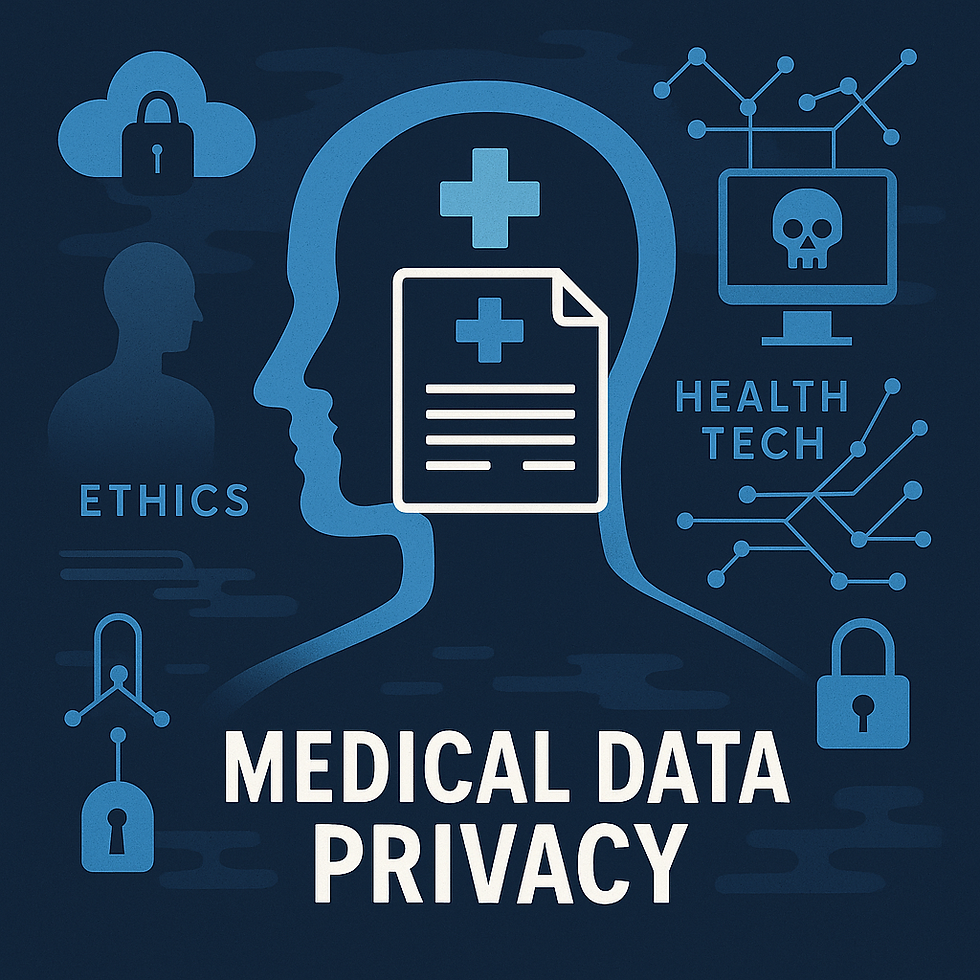Silent Guardians: Exploring the Ethical Frontier of Medical Data Privacy in the Digital Age
- Michael Turner
- Jul 28, 2025
- 2 min read
In our rapidly digitizing world, medical records have evolved from dusty paper files locked away in cabinets to dynamic streams of data flowing across interconnected networks. This transformation promises unprecedented benefits—real-time patient monitoring, personalized treatments, and accelerated medical research. However, beneath this technological marvel lies a profound ethical conundrum: who truly controls the intimate details of our health? Every byte of personal data is a digital fingerprint, revealing the most vulnerable facets of our lives. As these records traverse servers and cloud platforms, questions about medical data privacy and trust surface like specters in the night.
Imagine a future where your digital health record is as transparent and accessible as your social media profile. The potential to empower patients with their own data, encouraging proactive health management, is exciting. Yet, it also exposes an Achilles’ heel: the risk of data breaches and misuse. The challenge lies in balancing innovation with safeguarding personal dignity. In an era where algorithms can predict disease susceptibility or mental health trends, the misuse of such knowledge could amplify stigmas or limit opportunities—from employment to insurance. Thus, medical data privacy transcends technical firewalls—it is a guardian of human identity and autonomy.
This digital dance between access and protection urges us to rethink not just security protocols but the ethical frameworks guiding data stewardship. Could decentralized systems give individuals sovereign control over their medical histories? Might blockchain technology offer a way to authenticate and trace data usage without compromising privacy? The answers are still unfolding, but one truth remains clear: protecting medical data privacy is more than safeguarding information—it is preserving the narrative of our lives, deserving both respect and vigilant guardianship.
Flip Side: While the focus on medical data privacy underscores legitimate fears, some argue that excessive caution may hinder medical progress and public health benefits. Aggregated and anonymized data can drive breakthroughs in understanding diseases, improving treatments, and managing pandemics efficiently. Overregulation or patient hesitancy to share data might slow innovation and leave healthcare systems less prepared to respond to emerging threats. Striking a balance between individual privacy and collective welfare remains an ongoing debate in this complex domain.




Comments